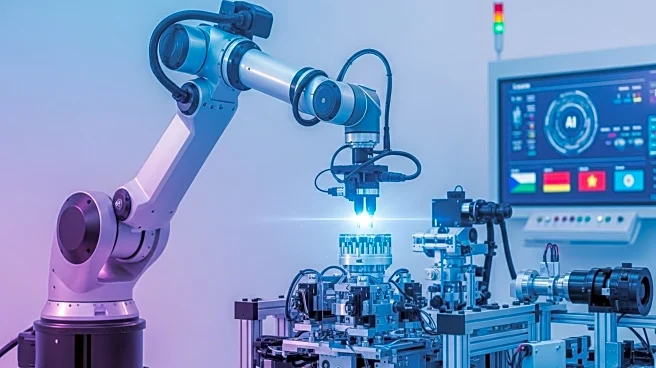What's Happening?
The Maintenance, Repair, and Operations (MRO) sector is gradually incorporating artificial intelligence (AI) to improve predictive maintenance capabilities. Industry leaders at the MRO Asia-Pacific conference highlighted the cautious approach due to aviation's safety priorities. GE Aerospace, a major AI patent holder, is utilizing AI to detect early signs of engine trouble, aiming to prevent disruptions and unplanned maintenance. HAECO is employing AI to optimize scheduling and resource allocation in maintenance hangars. Despite the potential benefits, the industry is slowly adapting, with only 34% of respondents actively using AI, while 62% are exploring its possibilities.
Why It's Important?
The integration of AI in MRO operations is significant as it promises to enhance efficiency and reduce costs associated with unplanned maintenance. By improving predictive maintenance, airlines can minimize downtime and optimize resource allocation, potentially leading to better service reliability and customer satisfaction. However, the slow adoption rate indicates challenges such as workforce readiness and regulatory concerns. Successful implementation could set a precedent for other industries, showcasing AI's role in operational efficiency and safety enhancement.
What's Next?
As AI adoption progresses, the MRO industry may face regulatory challenges that could impact its integration. Industry leaders express concerns about potential regulations that might hinder AI's adaptation. The focus will likely be on developing robust frameworks to ensure safe and effective AI use, while addressing workforce training and acceptance. Continued pilot projects and gradual scaling of AI applications are expected as companies seek to balance innovation with safety.









